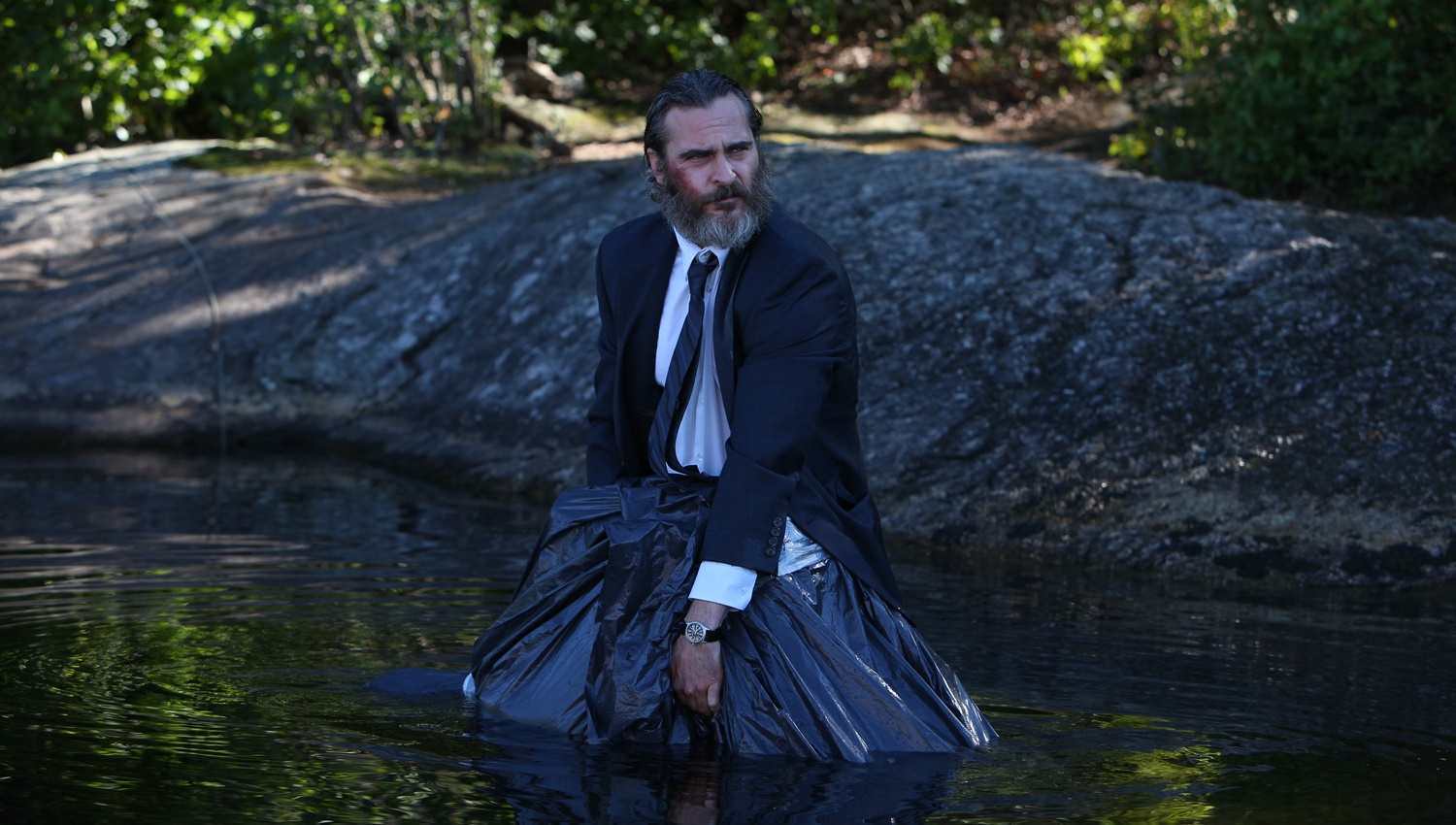
You Were Never Really Here
Dustin Chase
You might wish you never really watched Lynne Ramsey’s latest film You Were Never Really Here. Her first film since Need to Talk About Kevin (2011), she has a thing for long titles. My first reaction to this film, which debuted unfinished at Cannes in 2017 to standing ovations, was one of annoyance. For the first five or more minutes of this 90-minute film, Joaquin Phoenix walks around the city to various tones of techno music. The film editing is as schizophrenic as the character we are about to follow. Phoenix performance is intense, it’s nice to see him challenging himself as an actor again. However, his performance within the workings of this film is as fascinating as it is repellent.
Nightmarish visions of serving in the Gulf War haunt Joe (Phoenix) night and day. He takes care of his nearly helpless, debilitated mother during the day, but at night he is a hired hand. Joe embraces violence, mostly toward criminals who abduct young girls for sick pleasures. He has a reputation for brutality and producing results. His latest case involves a 13-year old girl named Nina (Ekaterina Samsonov) kidnapped from the home of New York Senator Albert Votto (Alex Manette). Nina’s case isn’t the ordinary child abduction he’s used to, the peculiarities of this one brings some of Joe’s most suppressed childhood memories to the surface.
The plot often feels secondary to the construct of the film, it’s only in the third act that the pieces even start to add up.
Ramsey’s reliance on existentialism to tell this story will be an instant deterrent for mainstream audiences. Comfortable and successful working on the periphery of abstract filmmaking, Ramsey’s storytelling requires more than just your attention. The chaotic nature of You Were Never Really Here has a Safdie Brothers vibe especially the disorderly fusion of music and editing. Cinematographer Thomas Townsend (We Need to Talk About Kevin) delivers some striking shots throughout the film, but they are fragments of a dislocated whole. The way violence is portrayed here is unlike her previous film and is more reminiscent of Nicolas Winding Refn’s work.
The film explores a kaleidoscope of emotions, often times all at once. It’s the editing and visual representation of hallucinations, flashbacks and horrific visions that will frustrate many viewers, enough (I predict) to walk out. While this type of editing will put the viewer on edge, it may also aid in visualizing the intensity of Joe’s mental trauma. The plot often feels secondary to the construct of the film, it’s only in the third act that the pieces even start to add up.
Final Thought
Lynne Ramsey’s latest existential thriller will either delight or frustrate, depending on your sensibilities.
